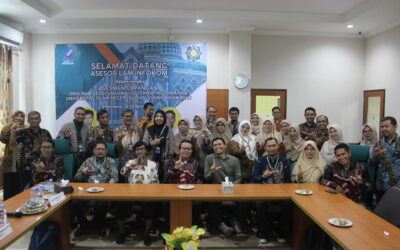Computer network security as part of a system that very important to maintain the validity and integrity of the data and to ensure the availability of services. One of important aspect is internet banking. Online electronic banking or internet banking systems give everybody the opportunity for easy access to their banking activities. These banking activities may include: retrieving an account balance, money transfers between a user’s accounts, from a user’s account to someone else’s account, retrieving an account history. (Claessens, Joris)
Every bank in the world has a different mechanism to provide internet banking services. On this web, we will discuss the mechanisms in general, the existing threats and solutions may be will discuss later. The most recent banking security threats are listed below:
- Phishing
Phishing is a scam where fraudsters ‘fish’ for personal details by using hoax emails claiming to be from financial institutions. This method continues to be favored by online thieves. (src:bankmuscat.com). Hoax emails claiming to be from banks are often generated overseas, and are sent in bulk asking recipient to provide sensitive information such as their username, password, Customer Registration Number or Debit Cards / Credit Cards numbers and PINs by providing a link leading to a fake website, enabling thieves to gather the details for later fraudulent use.
- Spyware and Adware
Spyware is a type of software that secretively collects user information while on the Internet. Adware is a type of spyware used by marketers to track Internet user’s habits and interests for the purpose of customizing future advertising material. The information used to customize future advertisements directed to the user, or can be sold to a third party for the same purpose.
- Viruses
A computer virus is software that affixes itself to another program like a spreadsheet or word document. While active, the virus attempts to reproduce and attach itself to other programs. This can tie up resources such as disk space and memory, causing problems on any home computer. An email virus is the latest type of computer virus that is transported through email messages and usually replicates by automatically distributing itself out to all contacts on the victims email address book.
- Trojans
A Trojan is a destructive program that poses as a harmless application. Unlike viruses, trojans do no replicate themselves and do not need a host program to attach to. Some Trojans will claim to rid the computer of viruses or other harmful applications, but instead introduce viruses and leave it vulnerable to attacks by hackers and intruders.
- Key loggers
If fraudster installs a software called “keylogger” on the computer or the device on which the customer is accessing Online Banking, the software copies to a file , every keystroke typed on that pc. This sensitive information gets captured that the fraudster can later use for fraudulent purposes and illegitimate access to your account.
- Internet Banking Fraud
Most online banking fraud schemes involve two steps. First, the criminal obtains the customer’s account access data, i.e. logon name and password. Second, the criminal uses this information to transfer money to other accounts and withdrawals the funds. For the first step, criminals have different schemes in the past. (src:webmasterview.com)
- Server Security Threats
It is easy to get a server. Anyone can setup a machine in his basement and start publishing websites like Brute Force Attack, Open Relay, Botnet, DoS, Cross-site Scripting, SQL Injection, Malware, Unpatched Software, and Careless Users.
===
Rahmad Kurniawan, S.T., M.I.T.
Informatics Engineering Dept, Universitas Islam Negeri Sultan Syarif Kasim Riau.





